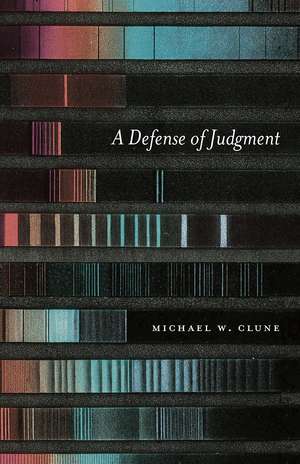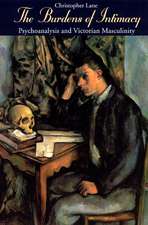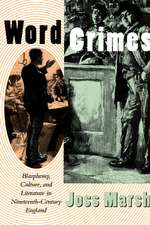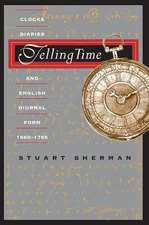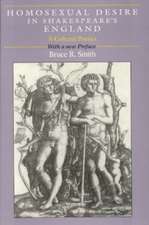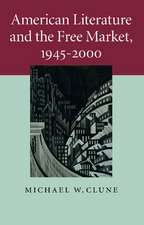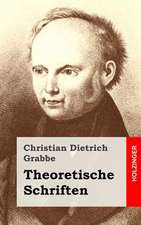A Defense of Judgment
Autor Michael W. Cluneen Limba Engleză Paperback – 23 apr 2021
Michael W. Clune’s provocative book challenges these objections to judgment and offers a positive account of literary studies as an institution of aesthetic education. It is impossible, Clune argues, to separate judgments about literary value from the practices of interpretation and analysis that constitute any viable model of literary expertise. Clune envisions a progressive politics freed from the strictures of dogmatic equality and enlivened by education in aesthetic judgment, transcending consumer culture and market preferences. Drawing on psychological and philosophical theories of knowledge and perception, Clune advocates for the cultivation of what John Keats called “negative capability,” the capacity to place existing criteria in doubt and to discover new concepts and new values in artworks. Moving from theory to practice, Clune takes up works by Keats, Emily Dickinson, Gwendolyn Brooks, Samuel Beckett, and Thomas Bernhard, showing how close reading—the profession’s traditional key skill—harnesses judgment to open new modes of perception.
| Toate formatele și edițiile | Preț | Express |
|---|---|---|
| Paperback (1) | 184.26 lei 3-5 săpt. | +12.38 lei 4-10 zile |
| University of Chicago Press – 23 apr 2021 | 184.26 lei 3-5 săpt. | +12.38 lei 4-10 zile |
| Hardback (1) | 603.63 lei 6-8 săpt. | |
| University of Chicago Press – 27 apr 2021 | 603.63 lei 6-8 săpt. |
Preț: 184.26 lei
Nou
Puncte Express: 276
Preț estimativ în valută:
35.26€ • 36.43$ • 29.35£
35.26€ • 36.43$ • 29.35£
Carte disponibilă
Livrare economică 04-18 martie
Livrare express 15-21 februarie pentru 22.37 lei
Preluare comenzi: 021 569.72.76
Specificații
ISBN-13: 9780226770154
ISBN-10: 022677015X
Pagini: 256
Dimensiuni: 140 x 216 x 23 mm
Greutate: 0.32 kg
Ediția:First Edition
Editura: University of Chicago Press
Colecția University of Chicago Press
ISBN-10: 022677015X
Pagini: 256
Dimensiuni: 140 x 216 x 23 mm
Greutate: 0.32 kg
Ediția:First Edition
Editura: University of Chicago Press
Colecția University of Chicago Press
Notă biografică
Michael W. Clune is the Samuel B. and Virginia C. Knight Professor of Humanities at Case Western Reserve University. He is the author of Writing Against Time; American Literature and the Free Market, 1945–2000; Gamelife; and White Out: The Secret Life of Heroin.
Cuprins
Introduction
Part 1. The Theory of Judgment
1. Judgment and Equality
2. Judgment and Commercial Culture
3. Judgment and Expertise I: Attention and Incorporation
4. Judgment and Expertise II: Concepts and Criteria
Part 2. The Practice of Judgment
5. How Poems Know What It’s Like to Die
6. Bernhard’s Way
7. Race Makes Class Visible
Conclusion
Acknowledgments
Notes
Bibliography
Index
Part 1. The Theory of Judgment
1. Judgment and Equality
2. Judgment and Commercial Culture
3. Judgment and Expertise I: Attention and Incorporation
4. Judgment and Expertise II: Concepts and Criteria
Part 2. The Practice of Judgment
5. How Poems Know What It’s Like to Die
6. Bernhard’s Way
7. Race Makes Class Visible
Conclusion
Acknowledgments
Notes
Bibliography
Index
Recenzii
"Clune's A Defense of Judgment [attempts] to revivify a version of what Northrop Frye called 'literary experience' as the basis on which judgments of value can be made. His timing is propitious: the scholarly landscape is more favorable to the aesthetic than it has been in decades. . . . In a way that much academic criticism is not, [A Defense of Judgment] is refreshingly alive to the necessity of helping people learn how to appreciate works of art."
"We need to admit—embrace—that our role as literary critics, and educators, is to provide expert judgment; Clune argues that it’s what most of us are already doing anyway."
“What makes A Defense of Judgment surprising and sometimes even thrilling is how Clune relates his critique to a progressive, anti-capitalist politics.”
“This work should be taken seriously by anyone who thinks that criticism matters, whether it’s conducted in an online forum, a publication, or in a classroom.”
"Clune’s A Defense of Judgment is a forceful polemic calling for English professors to defend themselves as experts. . . . Clune’s theory of literary appreciation does justice to the specificity of literary experience."
"Why study literature? What do humanities professors teach? In taking on these and other topics, A Defense of Judgment presents the clearest and most forceful account of literary studies that has yet to emerge from our moment of constant disciplinary self-reflection, justification, and reinvention. It's exhilarating to be in Clune's intellectual company. Even if you disagree (and many readers will disagree), you will find your thinking sharpened by engaging with his argument."
"A Defense of Judgment has already become a touchstone in debates concerning the present and future of literary studies—an occasion to rethink some of our discipline’s most fundamental concepts."
"An ambitious attempt to justify the work of judging 'value' in humanistic study. Clune’s frame of reference is specific—he writes as a scholar of literature—but his arguments have broad implications for the humanities."
"Clune argues that everyone can learn how to make better artistic judgments—judgments typically based on one's own aesthetics, class, biases, education, and background. . . . Clune wants to convince the reader that making up one's mind about the worth of a play, a painting, or a book requires understanding the country in which one lives, for example, a country dived by race, class, and religion—not one nation under God, but many different peoples. Since people bring to art their own personal and collective histories, education is needed; people come from their own artistic country and thus need to learn how to see and hear well to make good judgments."
“A Defense of Judgment is a characteristically brilliant, strongly argued, intellectually accessible attempt to provide a template for rethinking the role of value judgments in teaching and writing (and thinking) about literature, and by implication the arts generally. Clune’s discussion is continually illuminating, as are the exemplary readings he offers of works by Dickinson, Brooks, and Thomas Bernhard.”
“A Defense of Judgment mounts a lucid and compelling argument for the centrality of judgment, and a polemical critique of the disciplinary pieties that assume questions of value can be bracketed off from our core business of engaging critically with texts. Clune takes on the difficult theoretical and political consequences of defending a practice of judgment grounded in expertise, in particular by developing a rigorous critique of the principle of equality.”
“Clune’s scholarship is positively entertaining. He never fails to produce surprises, particularly as he discovers connections between the question of aesthetic judgment and a constellation of seemingly far-flung topics, including neoclassical economic theories, contemporary philosophy, poetry and death, and contemporary race relations. A Defense of Judgment is remarkable for its acuity and its clarity. It takes on a question central to the future of literary studies and offers a forceful and persuasive answer, one that is likely to spark a lot of debate and almost certainly some controversy.”
